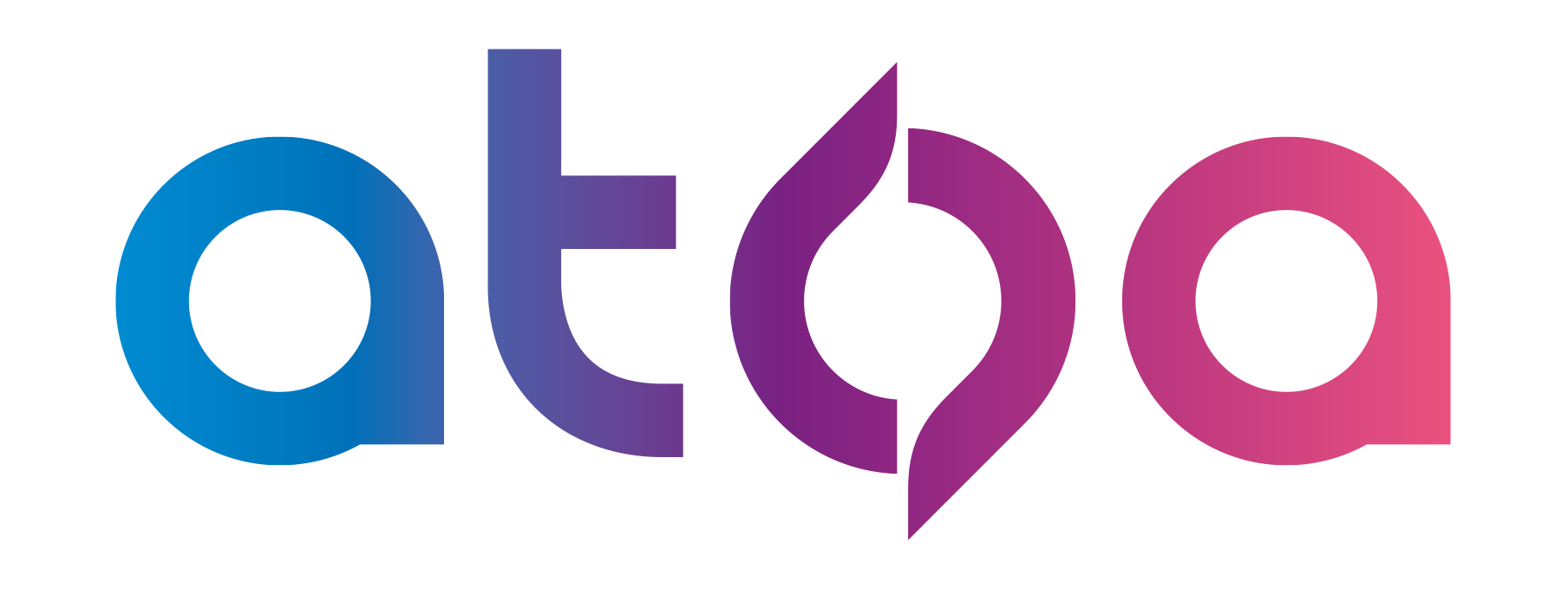How does it work ?
From idea to operational project
Sourcing
We identify an appealing property that has everything to offer to our community.
Validation
We visit the property and conduct an audit to precisely identify its potential, transformation costs, and building quality. Based on this, we enter into negotiations with the seller until an offer is accepted.
Project and cost estimates
We project the investment's profitability, taking into account rental yield, property appreciation through renovations and transformations, but never relying on a potential increase in real estate prices to enhance the figures. We provide all the necessary details about the project so that you can envision it.
Listing on the website and opening for subscription
We present the project with all the details until all available tokens are sold. You can subscribe to as many 50-euro tokens as you desire while they are available.
Finalizing financing
In the case of a project with bank leverage, we complete the formalities with our partner bank.
Signing at the notary for the authentic deed
The project is operational
Your account is credited every month, and we execute what was presented in the project. We establish the fiducie (trust) and smart contract.
What is a token ?
A token is a unit of digital value issued and stored on a blockchain. Tokens can be used to represent a variety of assets such as financial assets, physical goods, voting rights, reward points, or other forms of value.
Utility tokens are often issued in Initial Coin Offerings (ICOs), which are fundraising events for blockchain projects where investors purchase tokens in exchange for cryptocurrencies or fiat currency. These tokens provide access to rights and services. Most services offered on these tokens (trading, custodianship on behalf of clients, secondary market trading, etc.) are subject to digital asset regulations. In France, it is necessary to obtain a PSAN (Digital Asset Service Provider) registration, and equivalent regulations exist in other European countries. In 2024, these regulations are expected to be replaced by the European-level MICA regulation.
Security tokens represent a financial product (such as stocks, bonds, etc.), and the applicable regulation in this case is that of the underlying financial product rather than digital assets.
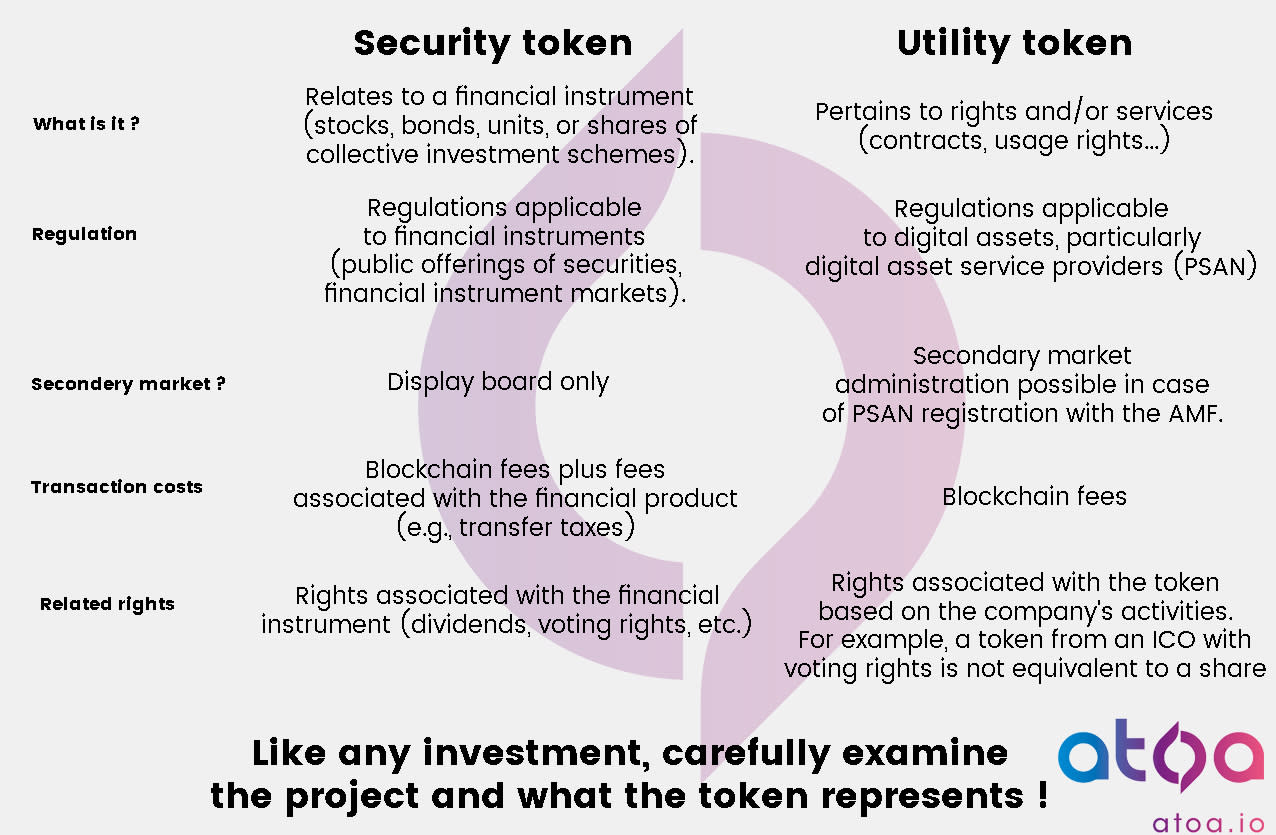
Tokens are typically created using smart contracts on a blockchain, such as Ethereum or Polygon for Atoa, which allow for the specification of issuance, transfer, and management rules for the tokens. Tokens can be transferred between blockchain users without the need for a trusted third party, making transactions faster and less costly than traditional transactions. Tokens can also be programmable, meaning they can be used to execute smart contracts or decentralized applications (dApps)..
In the case of Atoa, you have the choice to handle your tokens and secure them in your wallet (digital wallet) or not. In the latter case, the blockchain is the element that secures your investments and transactions, but you won't interact with it directly. However, we recommend that you gradually learn more about it using the content we provide or the excellent educational materials available online.
The operation of your savings account :
We are often asked why we refer to it as "ATO credit" when one euro of net cash gives a credit. Moreover, if a token holder requests a transfer, they will also receive one euro for a credit. Even the value of the savings account is displayed in euros! Wouldn't it have been simpler to do everything in euros? The significance of this credit concept is tied to the fact that we aim to develop various services, such as reserving seasonal properties or reinvesting with your savings account, and many more in the near future. Receiving your savings account in the form of a transfer is just one of the services, as illustrated in the diagram. This represents our commitment to expanding our services, and a customer who is only interested in receiving euros or cryptocurrencies can do so with a single click !
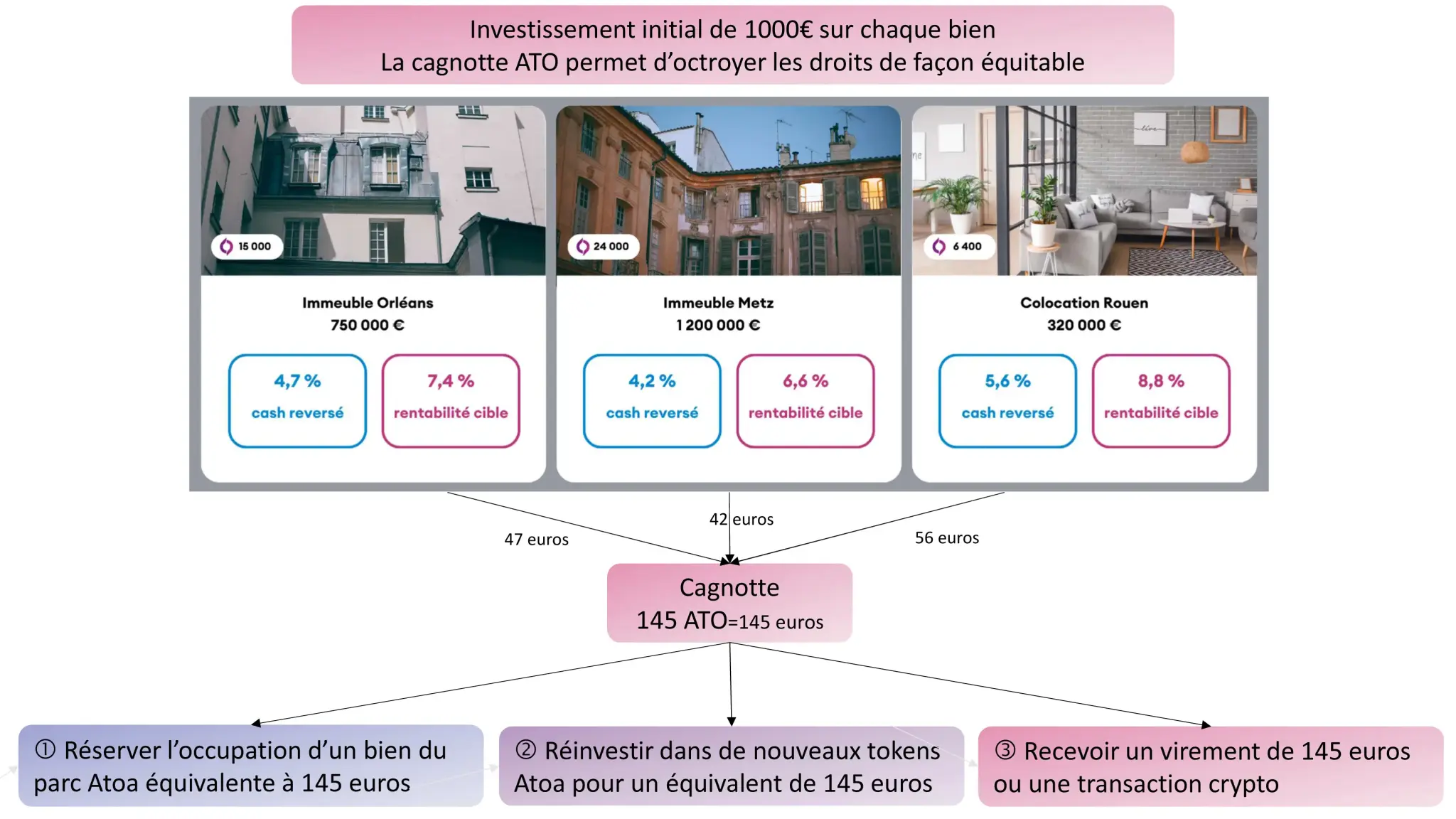
What is a Fiducie sureté ?
A fiducie sureté is a type of trust used as collateral. In a fiducie sureté, a party known as the settlor transfers certain assets to another party - a regulated third party known as the trustee - who holds them as collateral for the benefit of a beneficiary (or several beneficiaries).
The beneficiary can be a bank, a financial institution, or an individual who provides funds to a company or an individual, who then becomes the settlor. If the settlor is unable to repay according to the agreed terms, the trustee sells the assets held as collateral to repay the beneficiary.
In the case of Atoa, in the event of the platform's failure, the trustee will have the task of repurchasing the tokens corresponding to a property with the proceeds from the sale of the building, after repayment of any bank debt.
A fiducie sureté can be used in many situations, such as the purchase of a house or a car. In the case of a mortgage, for example, the property is transferred to the trustee to secure the repayment of the loan. If the borrower is unable to repay the loan, the property may be sold to repay the debt.
The fiducie sureté is a very effective mechanism for beneficiaries (token holders) as it offers them additional security in case of non-payment according to their contract. It is also useful for the settlor, as it may allow obtaining a loan on more advantageous terms due to the security provided by the assets held in fiducie sureté. This is why Atoa wants to establish partnerships with banks that will take being a beneficiary of the Fiducie as a guarantee.
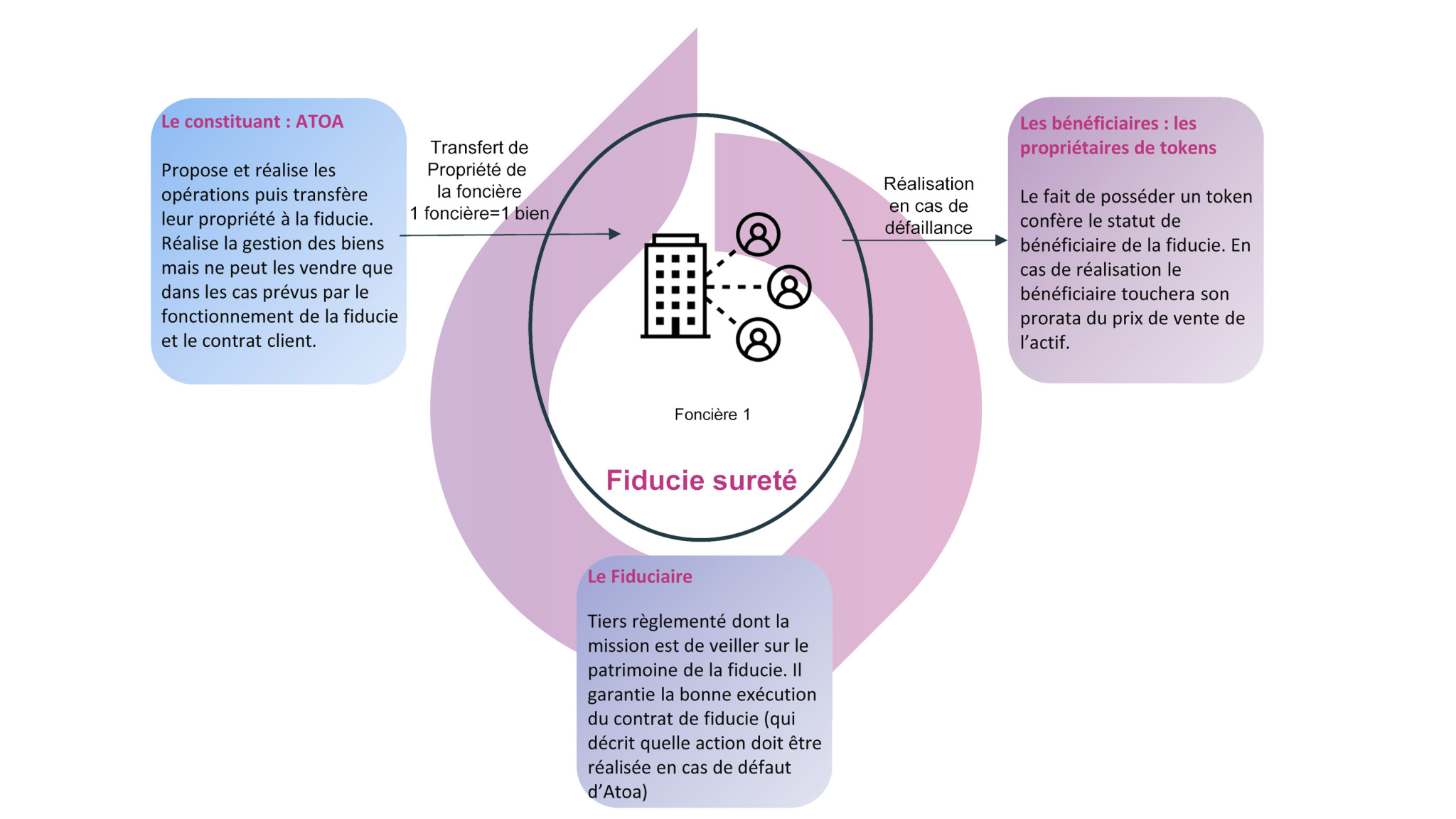
- Assets held in a fiducie (trust): In a security trust, the grantor transfers assets to the trustee to guarantee the fulfillment of the contract between the parties. Assets can include real estate, securities, tangible assets, bank accounts, etc. The choice of assets depends on the type of contract.
- Role of the fiduciaire (trustee) : The trustee is a neutral party that holds the assets held in trust on behalf of the beneficiary. The trustee is responsible for managing the assets and selling them in case of default of the grantor's obligations. The trustee is required to follow the beneficiary's instructions and act in their best interests.
- Beneficiary: In case of default by the grantor, the beneficiary may request the trustee to sell the assets held in trust to recover the amount due. This can also be triggered if previously agreed conditions are met (see bankruptcy case below).
- Benefits for the parties: Security trusts are advantageous for both parties. For the beneficiary, it offers a strong guarantee in case of non-compliance with what has been agreed between the parties. For the grantor, it provides reassurance to the beneficiaries thanks to the guarantee provided by the assets held in security trust. In addition, the power held by the trustee makes it possible to know in advance who will be responsible for the implementation of the guarantee by entrusting them with the necessary powers, unlike the cumbersome process of judicial liquidation if this case arises.
- Examples of use: Security trusts are commonly used in mortgage loans to guarantee repayment of the loan with real estate as the asset held in trust. They are also used in car loans, commercial loans, lines of credit, and bonds. However, using them is much more common in other countries such as Germany than in France, but considering the benefits they provide, we are convinced that it will become more common.
And if Atoa goes bankrupt ?
If the constituent goes bankrupt, the assets held in a security trust are considered separate from the bankruptcy estate. In other words, the assets are not part of the constituent's estate and therefore are not subject to the same distribution rules. The trustee is responsible for managing the assets held in the security trust in accordance with the terms of the trust and the instructions of the beneficiaries or the previously established contract if it provides for this scenario (which is obviously the case for Atoa). If the constituent goes bankrupt, the trustee is authorized to sell the assets held as collateral to repay the beneficiaries.
